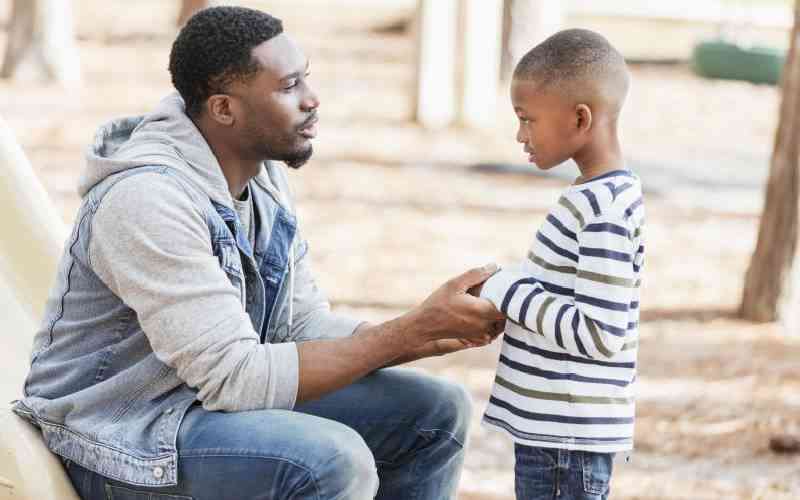
The word blessing appears 467 times in the Bible. The word bless comes from the Greek word 'eulogeo' which means speak well of. Another word to describe is 'makarios' which means having the favour of.
We often think of blessing as something that God does but the New Testament has several passages where human beings declare blessings over others. Bless those who persecute you; bless and do not curse. We labour working with our own hands.
Being reviled we bless; being persecuted we endure. The cup of blessing which we bless, is it not the communion of the blood of Christ? The bread which we break, is it not the communion of the body of Christ?
But no man can tame the tongue. It is an unruly evil, full of deadly poison. With it, we bless our God and Father, and with it, we curse men, who have been made in the similitude of God.
The book of Genesis records two accounts of a father blessing his son(s). The first is Jacob receiving blessings from his father Isaac, "Therefore, may God give you of the dew of heaven, of the fatness of the earth, and plenty of grain and wine. Let people serve you and nations bow down to you. Be master of your brethren and let your mother's sons bow down before you. Cursed be everyone who curses you and blessed be those who bless you (Genesis 27:28-29)."
The second is Jacob blessing his 12 sons each according to his blessing: "Reuben, you are my firstborn, my might and the beginning of dignity and excellence of power. Simeon and Levi, instruments of cruelty and anger, I will divide them in Jacob and scatter them in Israel.
Judah, you are he whom your brothers shall praise; your hand shall be in the neck of your enemies; your father's children shall bow before you."
"Zebulun shall dwell by the haven of the sea; he shall become a haven for ships and his border shall adjoin Sidon. Issachar is a strong donkey lying between two burdens; he saw the rest was good and the rest was pleasant; he bowed his shoulder to bear a burden and become a band of slaves.
- How can I help my kids build stronger social skills?
- Money talk at the dinner table: Teach children value
- How to prepare your toddler for a new sibling
- Teaching kids to choose the right company early
Keep Reading
Dan shall be a serpent by the way, a viper by the path; that bites the horse's heels so that the rider shall fall backwards."
"Gad, a troop shall tramp upon him but he shall triumph at last. Bread from Asher shall be rich and he shall yield royal dainties. Naphtali is a deer let loose; he uses beautiful words. Joseph is a fruitful bough. A fruitful bough by a well; his branches run over the wall. Benjamin is a ravenous wolf; in the morning he shall devour the prey and at night he shall divide the spoil" (Genesis 49:1-33).
What does a blessing entail? First, it is a meaningful physical touch. It involves a touch, a laying of hands, a kiss and an embrace. This conveys love and acceptance. Jesus took children on his laps and laid hands upon them and blessed them.
Second, it is a spoken message of affection and love. Isaac told Jacob, "Come near now and kiss me, my son; and he came near and kissed him and he smelled the smell of his clothing and blessed him" (Genesis 27:27).
Third, it gives an assurance of the person's value. Isaac affirmed Jacob's value by pronouncing the blessing: "Therefore, may God give you of the dew in heaven, of the fatness of the earth and plenty of grain and wine" (Genesis 27:28).
Fourth, it is picturing a glorious future. Isaac says to Jacob that may nations serve him and people bow down to him, and he is a Lord over his brothers.
That those who curse him be cursed and those who bless him be blessed. Isaac began to picture the future, help Jacob raise his sights, and see the possibilities of a bright future.
"Train up a child in the way he should go and when he is old, he will not depart from it" (Proverbs 22:6).
Fathers have a responsibility to help children find their niche in life. Isaac told Jacob that nations would bow before him. That he will have servants and not be a servant to anyone. Jacob began ordering his life in keeping with what his father declared over him.
Research reveals that children without present fathers are twice as likely to drop out of school, and 25 per cent of teenage suicides occur in households where one parent is not present.
Teens with absent fathers are twice as likely to be involved in early sexual activity and seven times more likely to get pregnant. The most important factor in a child's successful development is the involvement and engagement of a father. Do you have a father to bless you?
 The Standard Group Plc is a multi-media organization with investments in media
platforms spanning newspaper print
operations, television, radio broadcasting, digital and online services. The
Standard Group is recognized as a
leading multi-media house in Kenya with a key influence in matters of national
and international interest.
The Standard Group Plc is a multi-media organization with investments in media
platforms spanning newspaper print
operations, television, radio broadcasting, digital and online services. The
Standard Group is recognized as a
leading multi-media house in Kenya with a key influence in matters of national
and international interest.


